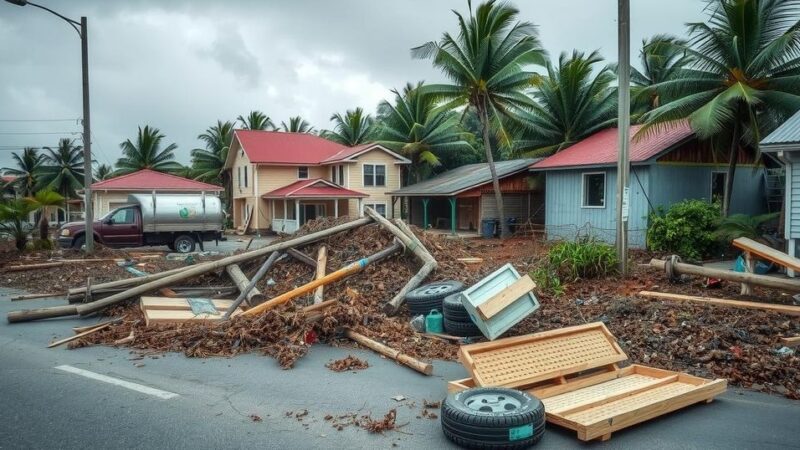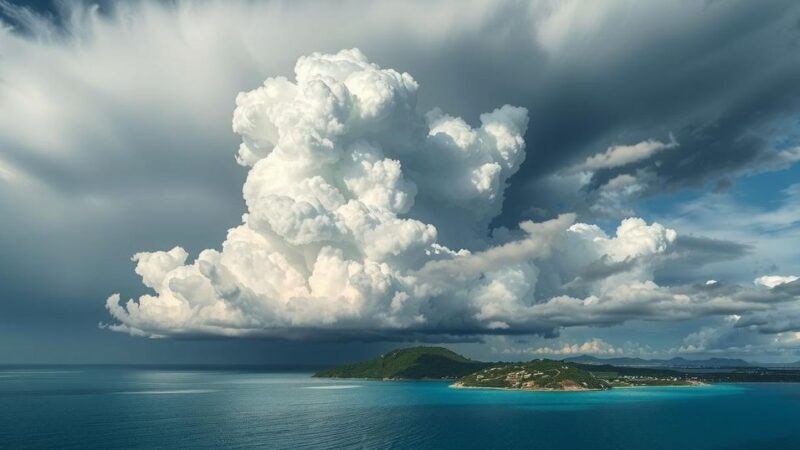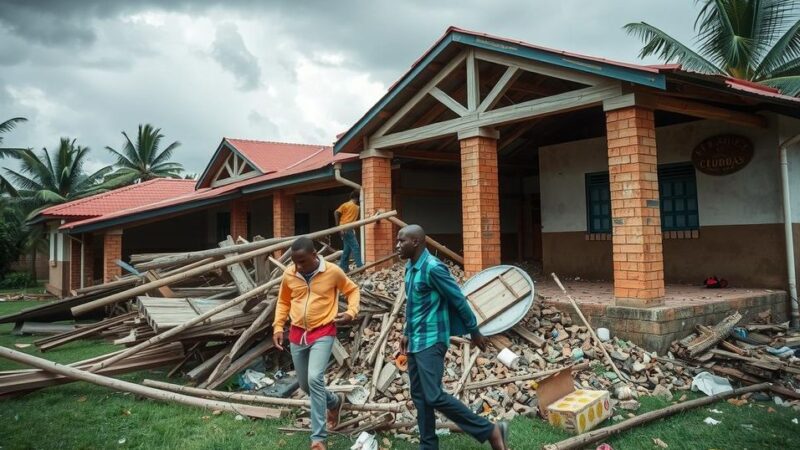Mayotte has been hit by Tropical Storm Dikeledi shortly after suffering from Cyclone Chido. Authorities have issued warnings regarding flooding and landslides, advising residents to stay indoors. Recovery efforts from Chido, which caused significant casualties and damage, are ongoing amid this new threat.
On Sunday, the French territory of Mayotte was struck by Tropical Storm Dikeledi, just weeks after it suffered from Cyclone Chido, which was the most devastating in nearly a century. Residents were urged to remain indoors and secure food and water supplies as heavy rains and strong winds battered the islands, exacerbating the ongoing recovery efforts. Dikeledi had previously made landfall in Madagascar as a cyclone but weakened before impacting Mayotte, which was still recovering from the damage incurred by Cyclone Chido, responsible for at least 39 fatalities and significant infrastructure destruction.
The French meteorological service warned that Dikeledi could regain cyclone strength, with authorities issuing a red alert due to the significant risk of flooding and landslides. The Mayotte Prefecture noted, “The danger to the population persists,” emphasizing the precarious situation as residents were advised against going outdoors until the alert was lifted. Emergency shelters were activated for those in need, and the damaged international airport remained closed.
After the catastrophic effects of Cyclone Chido, frustrations among Mayotte residents surfaced, particularly toward French President Emmanuel Macron, reflecting their grievances concerning perceived neglect from the French government. In preparation for Dikeledi, over 4,000 emergency responders were mobilized, primarily focusing on vulnerable populations in the capital, Mamoudzou, and other severely affected areas. The impact of Dikeledi was quickly evident, as reported by local media showing floodwaters overwhelming the southern village of Mbouini, which had previously escaped Chido’s wrath.
Mayotte is home to about 320,000 inhabitants, along with an estimated 100,000 undocumented migrants drawn by the French welfare system. The recovery from Chido is still ongoing, with officials indicating challenges in accounting for casualties, especially among the undocumented migrant population who traditionally bury the deceased promptly. As cyclone season continues in the southwestern Indian Ocean, the region is cautioned to remain vigilant against further storms.
Mayotte, an isolated archipelago located in the Indian Ocean, serves as an overseas department of France and represents the poorest region within the European Union. The territory is frequently affected by severe weather events, particularly during the cyclone season from November to April, when storms can wreak havoc on the local population and infrastructure. Recent years have seen an uptick in the frequency and severity of cyclones, raising concerns about disaster preparedness and response strategies. Cyclone Chido, which recently devastated Mayotte, underscored the region’s vulnerability and the challenges faced by authorities in addressing the needs of survivors, including undocumented migrants.
In summary, the catastrophic effects of Cyclone Chido on Mayotte have been compounded by the arrival of Tropical Storm Dikeledi, prompting urgent measures for resident safety and recovery interventions. The continued threat of extreme weather events emphasizes the necessity for effective disaster response strategies and heightened support for one of France’s most vulnerable territories. As the recovery efforts unfold, the resilience of the local community remains vital in overcoming the dual challenges presented by these natural disasters.
Original Source: www.durangoherald.com







